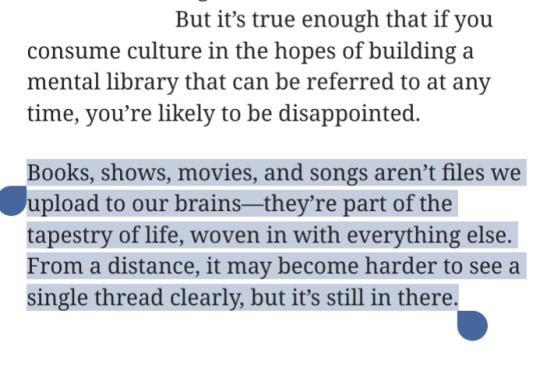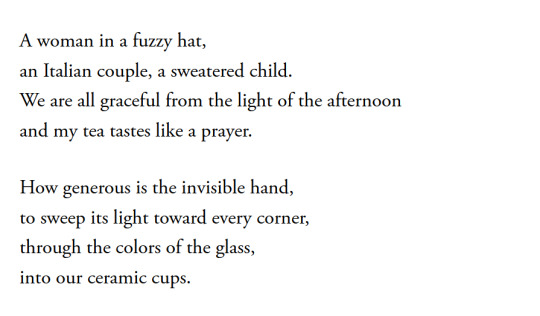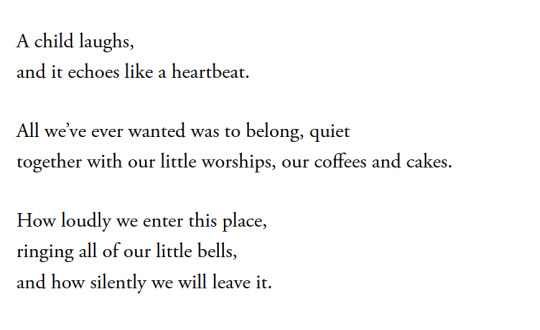#The atlantic
Explore tagged Tumblr posts
Text

I swear to God if you wrote something like this into a political satire like Spitting Image, it’d be called too on-the-nose.
17K notes
·
View notes
Text

#The atlantic#rafah#free palestine#palestine#democrats#republicans#journalism#comics#politics#usa#human rights#war criminals#books#reading
4K notes
·
View notes
Text
“But there are nuances to sadistic barbarity against Jews, we are told, and sometimes gang-raping Jewish women is actually a movement for human rights. It hardly seems fair to call people anti-Semitic if they want only half of the world’s Jews to die. The phrase “Globalize the Intifada,” currently chanted at universities across America, perhaps widens the net a tiny bit—but really, who can say? Even the phrase “Gas the Jews,” chanted at a rally organized by NYU students and faculty, is so very ambiguous. How dare those whiny Jews presume to know what’s in other people’s hearts? It remains unclear why anti-Semitism should matter only when it is lethal, or if so, how many unambiguously anti-Semitic murders would be necessary for anti-Semitism to be happening outside whiny Jews’ heads. A realistic estimate might be 6 million. Even then, Jews have had to spend the past 80 years collecting documentation to prove it.”
— Dara Horn, Why the Most Educated People in America Fall For Anti-Semitic Lies
#quotes#leftist antisemitism#antisemitism#the atlantic#dara horn#people love dead jews#article#op ed#jews of tumblr#jewblr#jewish#judaism#jewish literature#jumblr#quote#writing#palestine#israel hamas conflict#i/p conflict#tw violence#tw antisemitism#המצב#wise words
2K notes
·
View notes
Text
"Hitler had campaigned on the promise of draining the 'parliamentarian swamp'—den parlamentarischen Sumpf."
--Timothy W. Ryback, The Atlantic, Jan. 8, 2025

Ninety-two years ago this month, on Monday morning, January 30, 1933, Adolf Hitler was appointed the 15th chancellor of the Weimar Republic. In one of the most astonishing political transformations in the history of democracy, Hitler set about destroying a constitutional republic through constitutional means. What follows is a step-by-step account of how Hitler systematically disabled and then dismantled his country’s democratic structures and processes in less than two months’ time—specifically, one month, three weeks, two days, eight hours, and 40 minutes. The minutes, as we will see, mattered. [...] Joseph Goebbels, who was present that day as a National Socialist Reichstag delegate [when the Reischstag voted to give Hitler dictatorial powers], would later marvel that the National Socialists had succeeded in dismantling a federated constitutional republic entirely through constitutional means. Seven years earlier, in 1926, after being elected to the Reichstag as one of the first 12 National Socialist delegates, Goebbels had been similarly struck: He was surprised to discover that he and these 11 other men (including Hermann Göring and Hans Frank), seated in a single row on the periphery of a plenary hall in their brown uniforms with swastika armbands, had—even as self-declared enemies of the Weimar Republic—been accorded free first-class train travel and subsidized meals, along with the capacity to disrupt, obstruct, and paralyze democratic structures and processes at will. “The big joke on democracy,” he observed, “is that it gives its mortal enemies the means to its own destruction.” [emphasis added]
Although I don't believe that Trump is a Hitler, he is a fascist, and he (as well as members of his future administration like Project 2025's Russell Voight) seem to be drawing lessons about how to quickly consolidate power for Trump's second administration from other countries' previous & current fascist/authoritarian governments.
This is a terrifying article, because there are so many echoes of Hitler in the strategies that Trump has suggested he might use here in America, including "draining the swamp" by replacing civil servants with partisans, viewing opposition parties as the "enemy" (and in Hitler's case declaring some of them illegal), using the legal system against political enemies, dismantling the opposition media, attacking academia, scapegoating certain groups of people, considering using the military against civilian protests/"unrest," giving immunity to police who use lethal force, and consolidating power in the executive branch.
This is a gift 🎁 link, so there is no paywall. I encourage you to read the entire article
[edited]
#fascism#hitler#weimer republic#using democratic institutions to overturn democracy#donald trump#parallels#how hitler overturned a democracy in 53 days#the atlantic#gift link
224 notes
·
View notes
Text

—Julie Beck, "Why We Forget Most of the Books We Read", pub. The Atlantic [ID'd]
#q#quotes#essays and articles#typography#id included#julie beck#why we forget most of the books we read#the atlantic#m#x
2K notes
·
View notes
Text








How Hitler dismantled a Democracy in 53 Days. (The article goes into more detail, I highly recommend reading it)
Compare this with what's happening in the USA and pay attention to the parallels!!!
It genuinely took Hitler less than 2 months to put his dictatorship into place, please learn from our history and don't let this happen to your country!
The ICE trucks already being in many cities and Musk openly doing a Nazi salute on the inauguration stage not once, but twice and the crowd cheering should scare the hell out of everyone.
#we germans and many historians have been screaming this from the roof tops for years#please don't ignore the signs#please don't take it lightly#history is repeating itself#and it isn't too late to stop it yet#politics#us politics#german politics#nazis#hitler#1930s#article#facism#democracy#trump#donald trump#trump inauguration#inauguration#president#elon musk#history#the atlantic
139 notes
·
View notes
Text

the atlantic is back with its bullshit after the 'legal way to kill a child' article.

378 notes
·
View notes
Text

264 notes
·
View notes
Text
did...did I really just read the sentence "legally killed children" in The Atlantic with my own two eyeballs??? ?? was that actually a real sentence I read...
281 notes
·
View notes
Text

Out: Black people can act civilized like everyone else
In: Peace and quiet is racist
#the atlantic#atlantic#media#journalism#press#sjw bullshit#sjw#sjw idiocy#sjw stupidity#sjw cringe#wokeness#woke liberal madness#anti woke#woke#wokeism#woke is a joke#woke ideology#woke is evil#racism
156 notes
·
View notes
Text
Vice President Kamala Harris walked onto the ABC News debate stage with a mission: trigger a Trump meltdown.
She succeeded.
Former President Donald Trump had a mission too: control yourself.
He failed.
Trump lost his cool over and over. Goaded by predictable provocations, he succumbed again and again.
Trump was pushed into broken-sentence monologues—and even an all-out attack on the 2020 election outcome. He repeated crazy stories about immigrants eating cats and dogs, and was backwards-looking, personal, emotional, defensive, and frequently incomprehensible.
Harris hit pain point after pain point: Trump’s bankruptcies, the disdain of generals who had served with him, the boredom and early exits of crowds at his shrinking rallies. Every hit was followed by an ouch. Trump’s counterpunches flailed and missed. Harris met them with smiling mockery and cool amusement. The debate was often a battle of eyelids: Harris’s opened wide, Trump’s squinting and tightening.
Harris’s debate prep seemed to have concentrated on psychology as much as on policy. She drove Trump and trapped him and baited him—and it worked every time.
Trump exited the stage leaving uncertain voters still uncertain about whether or not he’d sign a national abortion ban. He left them certain that he did not want Ukraine to win its war of self-defense. He accused Harris of hating Israel but then never bothered to say any words of his own in support of the Jewish state’s war of self-defense against Hamas terrorism. In his confusion and reactiveness, he seemed to have forgotten any debate strategy he might have had.
Something every woman watching the debate probably noticed: Trump could not bring himself to say the name of the serving vice president, his opponent for the presidency. For him, Harris was just a pronoun: a nameless, identity-less “she,” “her,” “you.” It’s said that narcissists cope with ego injury by refusing to acknowledge the existence of the person who inflicted the hurt. If so, that might explain Trump’s behavior. Harris bruised his feelings, and Trump reacted by shutting his eyes and pretending that Harris had no existence of her own independent of President Joe Biden, whose name Trump was somehow able to speak.
Hemmed, harried, and humiliated, Trump lost his footing and his grip. He never got around to making an affirmative case for himself. If any viewer was nostalgic for the early Trump economy before its collapse in his final year in office, that viewer must have been disappointed. If a viewer wanted a conservative policy message, any conservative policy message, that viewer must have been disappointed. When asked whether he had yet developed a health-care plan after a decade in politics, Trump could reply only that he had “concepts of a plan.”
Almost from the start, Harris was in control. She had better moments and worse ones, but she was human where Trump was feral. She had warm words for political opponents such as John McCain and Dick Cheney; Trump had warm words for nobody other than Viktor Orbán, the Hungarian strongman whom Trump praised for praising Trump. It was an all-points beatdown, and no less a beating because Trump inflicted so much of it on himself.
At a minimum, this display will put an end to the Trump claim that Harris is a witless nonentity unqualified to engage in debate. Harris met Trump face-to-face before tens of millions of witnesses. She dominated and crushed him, using as her principal tools her self-command and her shrewd insight into the ex-president’s psychic, moral, and intellectual weaknesses.
Will it matter that Harris so decisively won? How can it not? But it may matter more that Trump so abjectly lost to a competitor for whom he could not utter a syllable of respect.
David Frum is a staff writer at The Atlantic.
111 notes
·
View notes
Text
The media double standard which overlooks Trump's deteriorating mental state. (from PBS Washington Week - 8/30/24)
JEFFREY GOLDBERG (host and editor of The Atlantic): Here's the thing. I'll make this observation. I'll own it. If Kamala Harris went from bacon to wind in her interview with Dana Bash, she would, this morning, not be -- the next morning, she would not be the nominee of the Democratic Party. That would have been a very, very strange -- people would have been like, what is going on? Do we just have an absurdly low standard now for the things that Donald Trump says and does? DOMENICO MONTANARO (panelist and senior political correspondent at NPR): I think that there is definitely a double standard, and I think part of it is how each side's voters interpret their candidate. And someone like Donald Trump, Republicans have had the opportunity for years to say this is not the guy we want. Instead, they've continued to get behind him. In every primary that Donald Trump weighs in on, he wins, and then the general election a lot of those candidates tend to lose. I think that from reporter's standpoint, we do have to be careful about how we -- what level we hold both of them to. When I fact-checked Donald Trump's hour press conference, he told 162 lies and distortions within that time period, 2.5 a minute, compared to Kamala Harris' DNC acceptance speech, where she had 12 statements that I found were contextually misleading or needed more.
Here's the entire episode.
youtube
The media has mostly shrugged off Weird Donald's unhinged rantings as Trump being Trump while holding Democrats to a higher standard.
We need to be more vocal about the double standard. When Trump has another crazed rant about sharks, windmills, electric batteries, and bacon which gets brushed off by a media provider, ask that provider: What would you be saying if a prominent Democrat conducted a similar unhinged rant?
#donald trump#weird donald#trump's dementia#trump's mental state#trump's unhinged rants#double standards#news media#media bias#jeffrey goldberg#domenico montanaro#pbs#washington week#the atlantic#election 2024#vote blue no matter who
101 notes
·
View notes
Text


299 notes
·
View notes
Text


Tara Monjazeb, Drinking Coffee in a Church, in The Atlantic
184 notes
·
View notes
Text

In this article,* a professor of clinical psychiatry at Weill Cornell Medical College, Dr. Richard A. Friedman, explains why he believes that during the Sept.10th debate, Trump showed alarming signs of cognitive decline, including incoherent, "repetitive," "circumstantial and tangential speech."
Dr. Friedman is clear that from a distance, he cannot diagnose Trump, but he recommends that Trump go through a full neuropsychiatric evaluation (NOT a brief mental-status exam) as soon as possible, especially given that Trump is running to take on the job of president/ commander in chief of one of the world's major superpowers.
When mainstream psychiatrists like Dr. Friedman start to express concern about Trump's cognitive functioning, it is time that the mainstream media begin to treat this as seriously as they did signs of Biden's cognitive decline.
[edited]
________________ *This is an Internet Archive copy of The Atlantic article, so you can read the entire article, even if you don't subscribe to The Atlantic.
#trump#cognitive decline#richard a. friedman#psychiatry#trump's debate performance#the atlantic#internet archive
190 notes
·
View notes